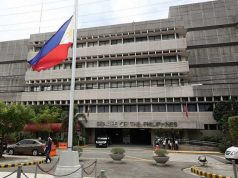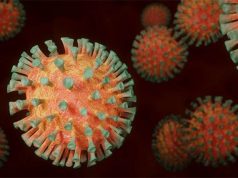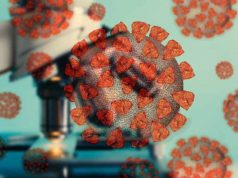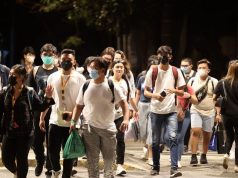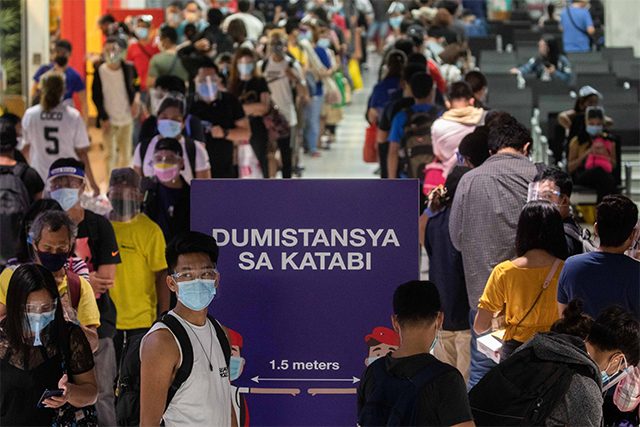
Safety concerns on COVID-19 transmission and credibility concerns on the Department of Health‘s capability to test cases were raised after Hong Kong detected the new coronavirus variant in a passenger who arrived from Manila in December.
In a virtual press briefing on early Wednesday, Chuang Shuk-Kwan, head of the communicable disease branch of the Hong Kong health department, announced that they detected four cases of the new variant called B117 in their country.
One of them is a 30-year-old female Hong Kong resident who came from the Philippines last December 22. She was tagged as case 9003 and arrived in Hong Kong via Philippine Airlines flight PR 300.
Hong Kong’s Center for Health added that symptoms of case 9003 only appeared on December 28.
In a statement, PAL said that this passenger presented a negative swab test to the airline before taking the Manila to Hong Kong flight on December 22.
“The presentation of a negative COVID-19 test by arriving passengers is a requirement of the Hong Kong government,” PAL said.
The airline has also turned over all necessary information related to the flight in question to the Philippine Bureau of Quarantine and cooperating closely with local health authorities.
The new variant of the deadly virus which causes COVID-19 was believed to be more contagious or 70% more transmissible than the earlier pathogen.
However, scientists don’t have much evidence yet if the new variant can cause more severe symptoms or is more fatal.
The first case was reported at the United Kingdom, hence, some media outlets’ dubbed it as the UK variant.
So far, infections were already confirmed in several countries in Europe and Asia such as The Netherlands, Canada, France, Japan, Singapore and Hong Kong, among others.
Contact tracing
Because of these developments, Tony Leachon, former consultant of the National Task Force against COVID-19, urged health authorities to conduct contact tracing immediately.
“Let us assume that the new variant is in the Philippines based on the HK report – we might not be able to check all passengers,” Leachon said.
“I suggest that we secure manifesto of the airline and do contact tracings ASAP. We must be worst case scenario thinkers. One step ahead always,” he added.
The DOH said that it is conducting contact tracing on the 40 co-passengers of Hong Kong case 9003 on the flight from Manila.
Failure to detect?
Some online users, meanwhile, criticized the DOH anew for the perceived failure to detect the new variant from the patient who came from the Philippines.
Nasa Pinas na ang new variant ng covid19,
HK pa ang naka-detect. nubayan.https://t.co/HcquGUiVl2https://t.co/jjGohNJTqT pic.twitter.com/vvKmYnhSaT— Emmanuel Enriquez (@WXappraiser) January 5, 2021
Others expressed fears over another potential lockdown of borders within the country and overseas.
Some online users noted that travel restrictions could hurt overseas Filipino workers again.


Some Filipinos recalled similar circumstances when the first case of COVID-19 was reported in the country in January 2020.

The first confirmed case of COVID-19 in the country was a 38-year-old woman who arrived in the country on January 21 last year from Wuhan, China, which was suspected to be where the virus originated from.
However, it was only in February when the national government decided to impose a travel ban to mainland China, Hong Kong and Macau.
After contradicting announcements from government officials last December 29, the national government finally approved “the prohibition from entering the Philippines effective December 30, 2020, 12:01 AM until January 15, 2021, of all foreign travelers coming from, or transiting through, the following countries/areas listed below or who have been to the same places mentioned below within 14 days preceding arrival in the Philippines.”
This covers the following countries:
- Denmark
- Ireland
- Japan
- Australia
- Israel
- The Netherlands
- Hong Kong, China
- Switzerland
- France
- Germany
- Iceland
- Italy
- Lebanon
- Singapore
- Sweden
- South Korea
- South Africa
- Canada
- Spain
Last Sunday, the Philippines also prohibited the entry of foreign travelers from the United States after the more infectious new variant of the coronavirus was detected in Florida.
READ: Philippines bans U.S. travelers
DOH update on new variant
In its statement, the DOH and the University of the Philippines-Philippine Genome Center denied speculations that a case of the new variant of the SARS-CoV-2 has been detected in the country.
“Based on the lineage analysis through whole genome sequencing done by the PGC, the UK variant was not detected in any of the 305 positive samples submitted to them from 9 institutions,” they said.
“The 305 samples analyzed by the PGC were composed of positive samples from November-December hospital admissions and from inbound travelers who tested positive upon arrival at the airport,” they added.
Genome sequencing is the process of analyzing a virus sample from an infected patient and comparing it with other cases.
The DOH is currently in close coordination with the Hong Kong’s International Health Regulations to secure relevant information about the infected patient who traveled from the Philippines.
In the meantime, it urged local authorities to continue the strict implementation of the minimum public health standards to prevent transmissions of the deadly pathogen.
“The DOH calls on local government units and the transport regulators to implement the health protocols in all settings. Strictly following the minimum public health standards is still the best measure to cut transmission of the variant and minimize opportunities for virus mutation,” it said.





